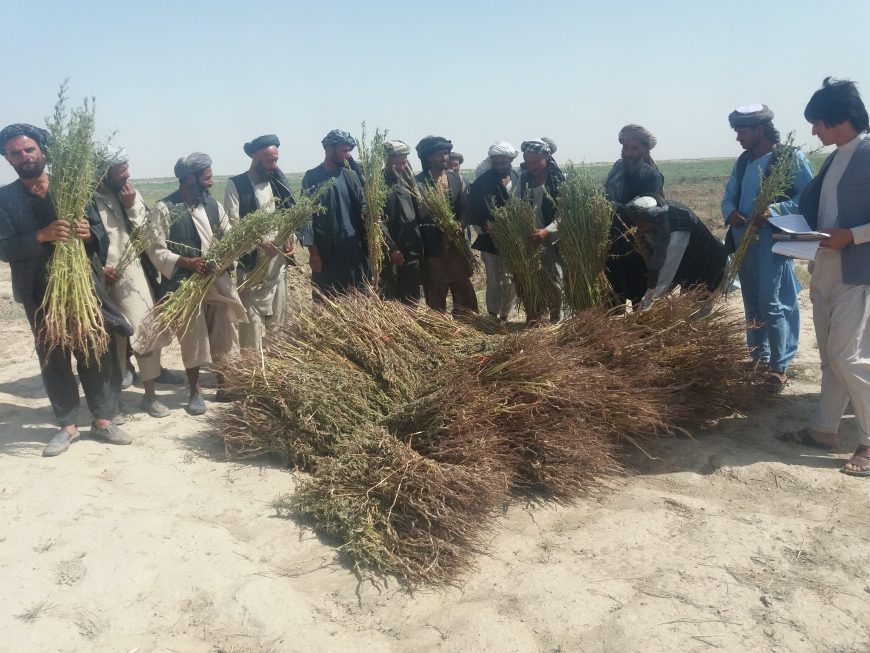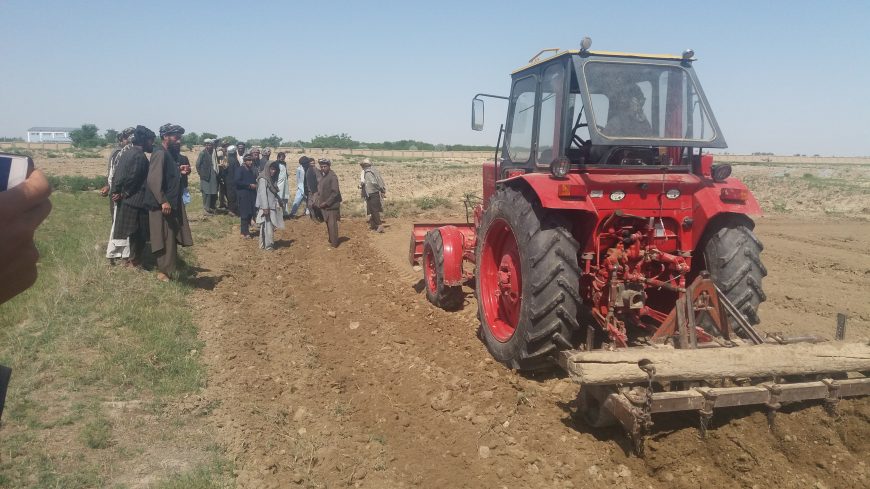By introducing viable alternative approaches to the cultivation and processing of oilseed crops, ACTED, with funding from UNODC, is working to improve the livelihoods of 100 vulnerable farmers in three northern provinces of Afghanistan.
Need for a higher harvest
Across the northern provinces of Afghanistan, severe drought has had devastating effects on agricultural output. Farmers like Naseer, a 48-year-old father of eight living in Koshkak village in Balkh province, struggle to meet the needs of their households due to insufficient harvest revenues. Naseer and his wife rely on the cultivation of cotton, melon and sesame as their main source of income.
With access to water impacted by drought, Naseer has been forced to farm smaller plots of land, shrinking his harvests and thus reducing his family’s income. Struggling to provide enough food for their children, farmers like Naseer are forced to adopt negative coping mechanisms such as selling their lands or taking their children out of school.
Boosting cultivation of alternative cash crops through improved agricultural practices
ACTED is supporting 100 vulnerable farmers like Naseer develop resilience against drought by diversifying their agricultural production through cash crops like sesame. ACTED supports farmers in Northern Afghanistan through the provision of sesame seeds, fertilizer and complementary trainings on how to improve farming practices. Additionally, ACTED assists local farmers by creating farmers’ associations, providing oil crop machines and delivering trainings on oil seed crop management. With trainings and material support, farmers in the region are now prepared to produce and sell sesame oil.
Now I can improve my income and provide nutrition for my children,
Improved and sustainable livelihoods
The cash crops programme is already having an impact on agricultural productivity, according to Naseer.
“In the past, we had higher costs and a lower harvest,” he said. “For instance, we would plant 4.5 Kg of sesame on one Jerib of land and produce 140 – 168 Kg of harvest. After participating in ACTED’s training, our production costs decreased and the harvest increased. Now I plant 3 Kg of sesame on the same land and collect 238 Kg of harvest.”
In the coming months, ACTED will continue to support farmers like Naseer to increase the profitability of their business by linking the new farmers’ associations with different markets and buyers in the community.

